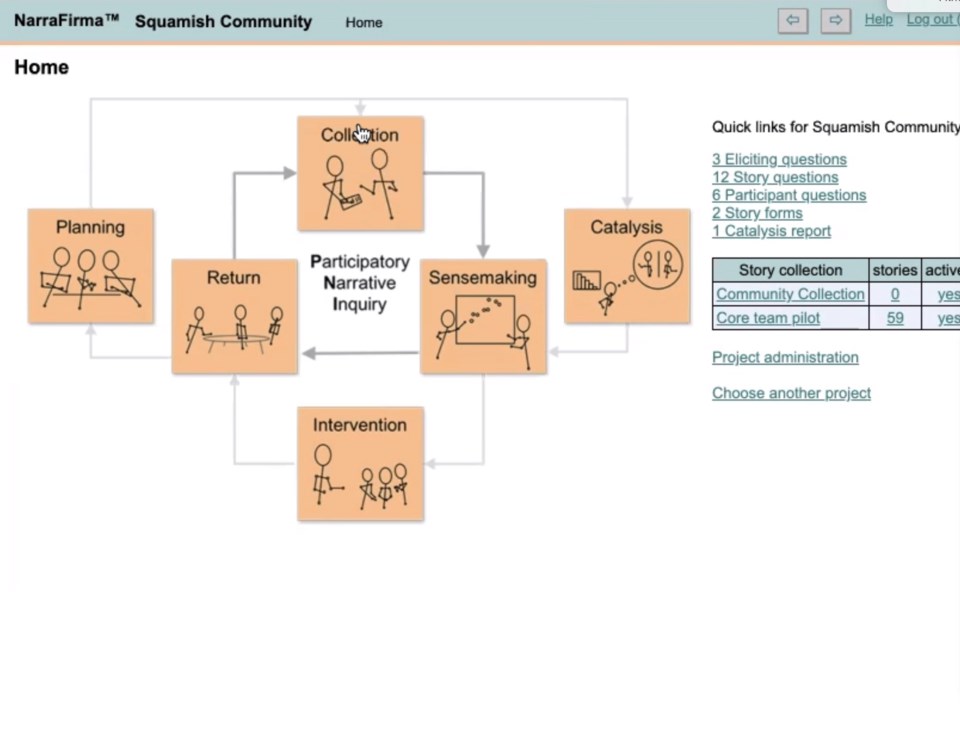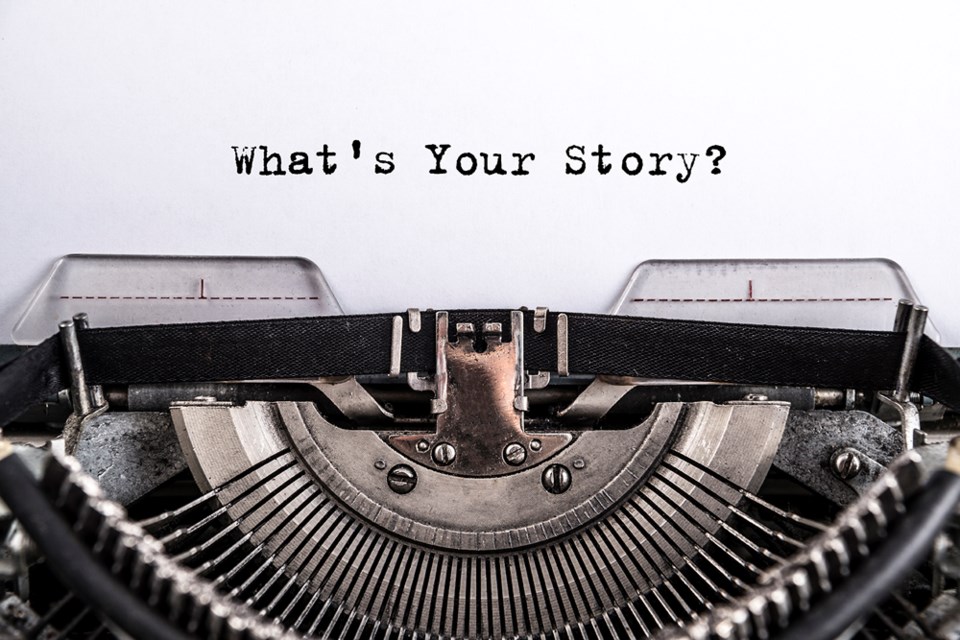The District of Squamish (DOS) is inviting residents to share stories during the pandemic as part of its Your Stories, Our Community project, which it is undertaking with several other community stakeholders.
In a Nov. 27 Zoom call with DOS Councillor Jenna Stoner, Howe Sound Women's Centre executive director Ashley Oakes and consultants Chris Corrigan (Harvest Moon Consultants) and Amanda Fenton (Amanda Fenton Consulting), the four stakeholders walked The Chief through the philosophy behind the project and how it works. Rather than drilling down into hard, quantifiable data, Corrigan explained, the goal of participatory narrative inquiry is to collect anecdotes and information that are typically collected casually around a water cooler or over coffee, which have been much rarer occurrences in recent months.
The research isn't meant to replace, for example, an economic study of how local businesses are affected; rather, it's meant to provide those quantitative insights with more "texture."
Stoner said the project started with council in the late spring and early summer after discussing with other community organizations.
"We really started to try to think about 'How can we start to understand what the lived experience is of our community members in Squamish?'" she said. "We were batting around this idea at council. We also knew that there were a number of non-profit and Indigenous leaders in our community that were also trying to get a sense of the scope of what was happening in our community: both what was working, what people were turning to in order to support them in their times of need, and also where the gaps were."
After considering more traditional approaches such as surveys, Stoner said council was drawn to the approach presented by Fenton and Corrigan.
"We brought Amanda and Chris in and they really helped us understand the power of storytelling as a tool to tell us what was happening on the ground and how powerful stories can be in order to get insights into what people's day-to-days really are," she said.
As a social services organization, Oakes feels there will be valuable information to glean from the process, as a multipronged approach will be necessary to help Squamish rebuild positively after the pandemic.
"One of our big goals was to find a way to anonymously give survivors a voice, that they can share their experiences, not only with the pandemic, the COVID pandemic, but the dual pandemic that we're seeing with increased domestic abuse and social isolation leading to increased violence," she said, noting that she hopes participants break feelings of isolation by taking part and knowing someone wants to hear what they have to say.
Corrigan hopes to collect between 100 and 300 stories for the project, noting that people can submit as many as they like. The project had nearly 60 responses as of Nov. 27.
"The more diverse a set of stories we have, the easier it is to slice through, look at interesting patterns and get those insights that cause us to take action in different ways," he said.
Submitting a story is simple: all you have to do is type what you'd like to share in the text box, and there will be a handful of questions about the experience and a few demographic questions afterward.
As one of the project's aims is to determine community resilience, Corrigan noted questions include asking respondents how difficult the experience was, if they feel it's common, and their emotions about it. Any two answers can be compared to one another, so for example, Corrigan can focus on stories for those who described a difficult experience, but are now doing much better — or, conversely, are not.

Another question is who participants feel should hear their story, anyone from government and social service agencies to parents, peers and the public. In the case of more formal entities, Corrigan said he'll get stories into the right hands.
"It's not like as consultants, Amanda and I are taking away all the data and writing up the research findings and presenting recommendations," he said. "What we do is we … collect stories, look and see similarities and differences, and then ask the storytellers, people in the community — it could be the women Ashley's working with; it could be the kids in the schools — what do you see in these stories that tells us what we should do?
"We can bring lots of different questions and curiosities to this material."
While Corrigan is happy with the diversity of experiences the project has garnered to this point, he said there may be direct calls for specific types of experiences if there seems to be a relative lack.
"Part of this study is we are allowed to bias the results," he said. "We're not trying to provide objective proof. This isn't polling or opinion surveys or demographic studies.
"This is just giving us a broad set of experiences that we can work with and use to inspire action. We're allowed, in this type of research, to cultivate stories that we're missing."
The project will move into Phase 2 once more responses come in and there is a greater diversity of stories available. There's no deadline at this point, and Corrigan said keeping the portal open longer allows residents the opportunity to share how their experiences have changed over time.
"There's no point at which you stop doing your research on how to become a more resilient community," he said. "This is just the tool for being aware of the situation as it's unfolding."
Stoner explained that Phase 2 will take the form of formal and informal discussions, held in ways that are appropriately in line with pandemic protocols at that point.



